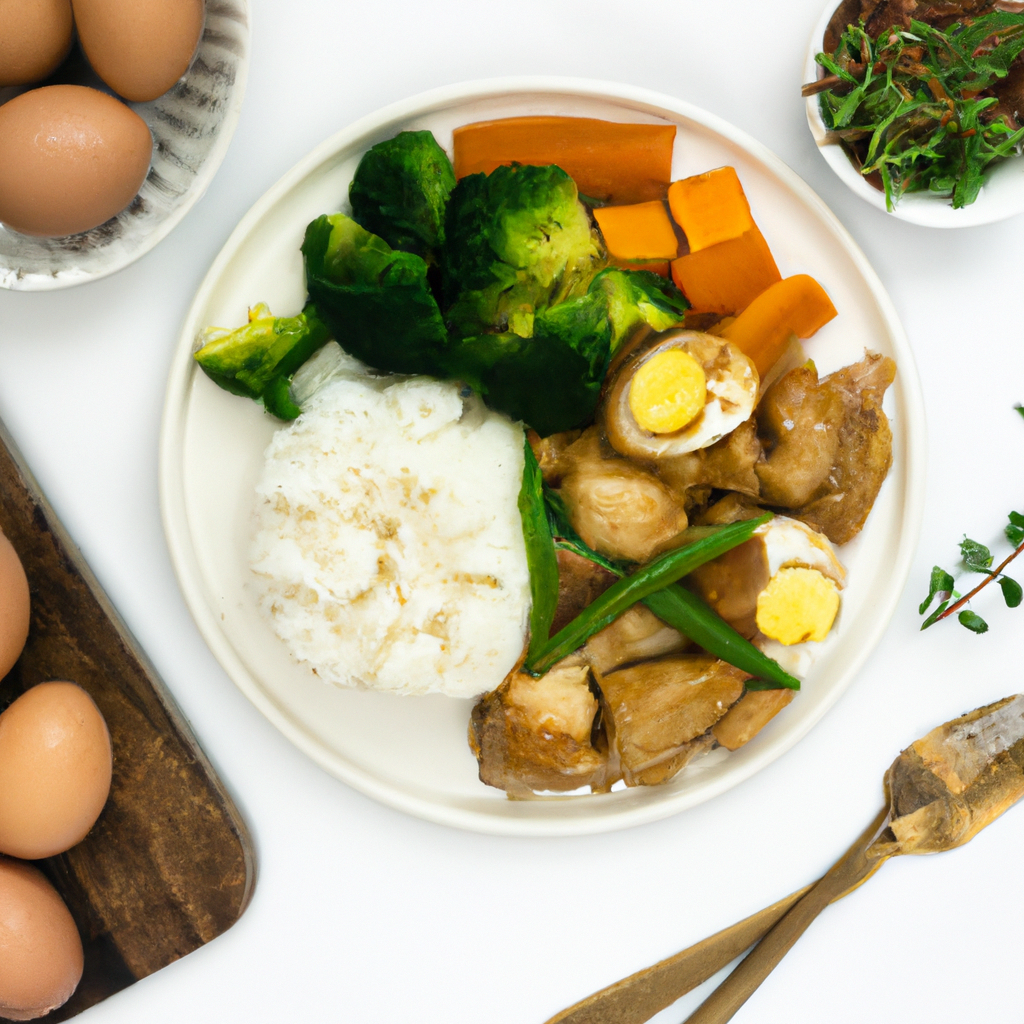Are you a passionate cook looking for a way to make your meals even healthier? Do you want to ensure that you get the most out of the food you eat? If so, mindful cooking is the perfect way to ensure maximum nutrient retention in each mouthful you consume. By learning to be mindful while cooking, you can implement techniques that will help to enhance the health benefit of your meals.
1. Cooking with a Mindful Focus: Maximizing Nutrients
When it comes to cooking, focusing on nutrition is essential to healthy eating. Here are some tips to maximize the nutritional value of your meals:
- Take the time to plan meals. Prioritize nutrient-rich foods such as whole grains, nuts, fruits, and vegetables.
- Be mindful of serving sizes. Pay attention to how much you’re eating of each individual nutrient.
- Prepare meals with fresh, seasonal produce. Fresh fruits and vegetables will have the most nutritional value.
- Using minimal processing and no added fat, sugar, and salt to maximize the health benefits of food.
Experiment with Variety
Don’t be afraid to try new and different flavors or ingredients. Eating the same foods over and over again can be boring, not to mention detrimental to your health. By experimenting with new flavors and types of food, you’ll be able to drastically increase the variety and nutritional value of your meals.
Eat Plenty of Whole Grains
Eating whole grains instead of processed grains can drastically improve your nutrition. Whole grains can provide fiber, B-vitamins, healthy fats and other essential nutrients. Examples of whole grains include buckwheat, quinoa, oats, barley, bulgur and brown rice.
Don’t Forget Fat
Healthy fats are important for a well-rounded diet. Healthy fats, such as those found in olive oil, avocados, nuts, and fatty fish, provide essential fatty acids, vitamins, and minerals that the body needs to function properly. Make sure to include healthy fats in your diet for optimal nutrition.

2. Key Techniques for Retaining Nutrients
Cook With Care
Cooking can have a huge impact on the nutrient makeup of any vegetable. Therefore, it is essential that chefs take extra care when preparing meals for their families. There are several key cooking techniques which can help retain important vitamins and minerals:
- Steaming: This gentle method uses water or broth to cook vegetables while preserving their texture and essential nutrients. To enhance flavour, steam the vegetables with herbs and spices.
- Stir-Frying: This fast-cooking method not only decreases cooking time but also maximises the transfer of oils and herbs directly into the vegetables.
- Roasting: Roasting vegetables at high temperatures allows them to form an amazing caramelised crust while preserving their juiciness inside.
Serve Immediately
Once cooked, it is vital to serve vegetables right away to take full advantage of all the nutrients. The longer they sit on the plate, the more their nutritional value decreases. To be sure that your vegetables reach the table piping hot, try adding a small pan of hot water beneath the vegetable platter.
Preserve Properly
For those who love their leftovers, the right preservation methods are just as important as careful cooking. If storing vegetables for a longer time, be sure to keep them cold. Vegetables in particular can lose much of their nutrition and flavour when left out in the open for too long.
Keep it Fresh
If you plan to eat your vegetables raw, choose those which are best quality and freshly picked. Look for vibrant colours and crunchy textures as these are signs of freshness and health benefits. For fruits and vegetables that require washing, make sure to take good care of their delicate skins to prevent nutrient loss.
3. Reaping the Benefits of Mindful Cooking
Cooking with mindfulness is so much more than simply preparing a meal. It’s about being purposeful and conscious of your decisions and actions while in the kitchen. There are plenty of delightful benefits to mindful cooking that will make it easier to stay on track and fully enjoy your meal preparation experience.
- Increase your appreciation of food: A mindful approach to cooking often requires more thoughtfulness before a meal is prepared. When you slow down and think about the ingredients, you may find that you become more conscious and appreciative of the food items integrated into the recipe.
- Get creative with new ingredients: When you take the time to understand new ingredients and how they integrate into a recipe, it can open up new possibilities when it comes to meal prep. You’ll be able to find innovative treatments for staples or come up with unique approaches to classic recipes. It can be incredibly fulfilling to expand your culinary horizons.
Preparing meals can take on a special kind of purposefulness – often providing a welcome distraction from stressful aspects of our lives. When you’re cooking for yourself, it allows you to take a break from the hustle and bustle of daily life and take some time to concentrate on yourself. It can also be incredibly fulfilling to cook for someone else. Providing a meal for somebody can be conveying an act of kindness and love that can be expressed in no other way.
Relating to Food on a Deeper Level
Mindful cooking can contribute to stronger connections between mind and body. Experiencing the preparation process of a meal as it comes together from its raw components can make it so much easier to be mindful of what we’re actually eating. This can help to make mealtime a more reflective process, allowing us to explore our choices on a deeper level and understand the effect of food on our bodies.
Mindful cooking can be incredibly therapeutic and helps us experience our meals in an entirely new and powerful way. When you slow down during the preparation process, you can develop a much greater understanding for your ingredients and the overall meal, forging strong relationships with the food that will last a lifetime.
4. Unlocking the Power of Nutrient-Rich Cuisine
When it comes to a nutritious diet, many of us are perplexed by the sheer volume of potential food options, not to mention the vast array of vitamins, minerals, and other nutrients found in each. But the beauty of a nutrient-rich cuisine is that it unlocks powerful and delicious flavors without a lot of complicated work. Here are four ways to maximize your meals’ nutrient content:
- Eat Whole Foods – Whole, unprocessed foods are packed with vital nutrients and are an excellent kick-start to gaining the right kind of nourishment. They’re low in calories and full of superfoods like nuts, legumes, and fruits and vegetables. Not to mention, they taste amazing too!
- Be Wary of Sugars – Too much sugar can take an otherwise nutritious dish and make it unhealthy. Be conscious of what kinds of added sugars you’re adding to your meals, and opt for natural sweeteners whenever possible.
- Mind Your Fats – Healthy fats like omega-3s and monounsaturated fats can be beneficial for your health. Stick to healthier fat sources like avocado, nuts, and salmon to get the good stuff while avoiding bad fats like trans fats.
- Choose the Right Carbs – Carbohydrates can be a tricky one since there seems to be a lot of conflicting advice on the subject. Pick complex carbs like whole-wheat bread, beans, and oats and steer clear of the refined carbs found in white breads, pastries, and chips.
Locking in the true power of nutrient-rich cuisine is possible when you combine nutritious ingredients with smart substitutions. Instead of reaching for that processed bag of chips, choose an avocado with a drizzle of olive oil and a sprinkle of sea salt. When you make smarter choices with your meals, the body’s natural vibrancy is unlocked – you’ll be energized and glowing all day!
By increasing the nutrient content of your meals, you’ll be taking small steps towards a healthier and happier lifestyle. Make sure to take advantage of all the delicious flavors the world has to offer by unlocking the power of elite cuisine.
Mindful cooking is a recipe for success that rewards you with delicious and nutritious meals. By incorporating mindful techniques into your cooking practices, you can enjoy meals that contain more flavor, nutrition, and vitality—all while reducing the amount of time and energy spent in the kitchen. You can now set your sights towards your next mindful cooking success and continue to reap the delicious rewards of mindful cooking.

